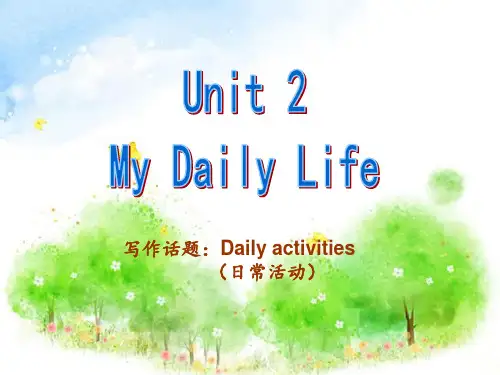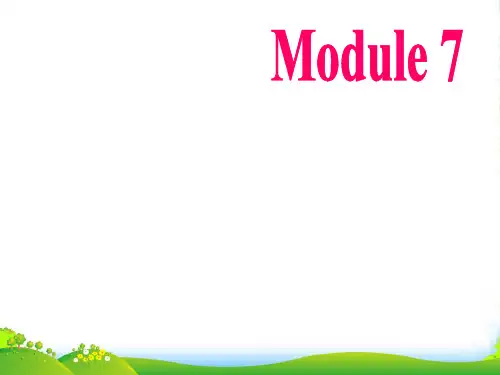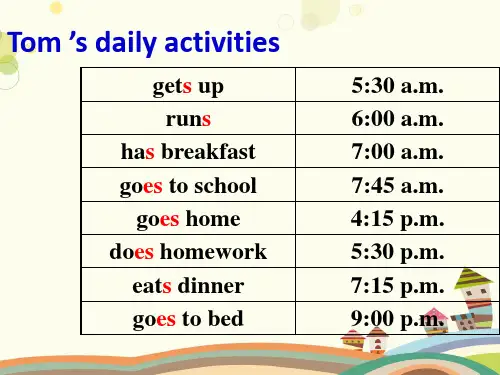morning.
一
二
三
四
3. Who is your best (good) friend in your class? 4. When does the boy get (get) dressed? 5. Ann never plays (play) computer games at school.
一
二
三
四
exercise, work, she, shower, get,never, early, class, music, always
21. Her
students love her. They say she is
22. always kind and teaches them very well. Miss Zhang has
school.
A. never; for
B. never; to
C. always; for
D. always; to
一
二
三
四
( D )13. He
the first class at 8:00 in the morning.
A. usually have
B. have usually
C. has usually
一
二
三
四
exercise, work, she, shower, get,never, early, class, music, always
Miss Zhang is busy every day. She is an English teacher. She
16. works very long hours every day. She gets up 17. early in the morning. She 18. exercises at 6:15.










